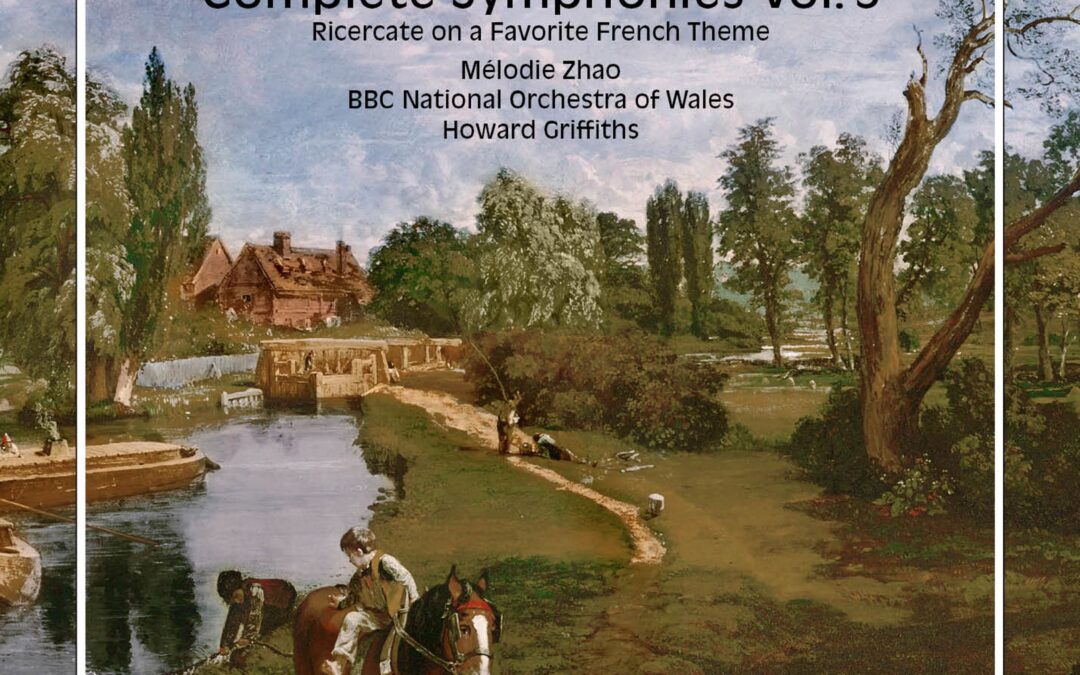Mélodie Zhao piano
BBC National Orchestra of Wales
Howard Griffiths director
CPO 555 637-2
Both British music research and British musical life pay surprisingly little attention to 19th-century British music. This has hardly changed since a few epoch-making writings. The fact that a German record label is now taking up the orchestral music of Cipriani Potter (1792–1871) is therefore all the more remarkable.
Potter composed a considerable number of symphonies, of which nine are known today. Their numbering is rather complex, as chronological numbering was used alongside numbering within individual keys. Volume 2 contained a Symphony in C minor, the manuscript of which, in the British Library, is numbered 6. Chronologically speaking, therefore, three symphonies are already missing at this point.
Vol. 3 now moves on to the years 1833/34, bypassing symphonies 7, 8 and 10. Potter here adopts the key-based numbering system, featuring Symphony No. 2 in D major and an unnumbered symphony in C minor.
The slow introduction to the D major symphony is a masterpiece of invention, with harmonies that build suspense and seem to oscillate between the styles of Beethoven, Spohr and Schubert. Other aspects of the work appear less progressive. The short scherzo is rhythmically quite complex throughout, but after three minutes a melodious andante offers respite. The finale is primarily based on one theme that is explored in a variety of ways.
The manuscript of the C minor symphony shows clear signs of substantial revision. The recapitulation of the first movement is not simply a repetition of the exposition; it is shortened and connected to a short coda. The melodies are more reminiscent of Haydn than Schubert this time (it is probable that the symphony was composed earlier than can be proven); the counterpoint is of the highest quality. The most interesting movement is the finale which is mainly nourished by a short motif.
In addition to the symphonies, the CD features a Ricercare on a Favourite French Theme in F major for piano and orchestra. Potter was also an accomplished concert pianist and the work presented here is a welcome addition.
The music makes so powerful and compelling an impression thanks to the outstanding recording by the BBC National Orchestra of Wales under the baton of Swiss-based English conductor Howard Griffiths, who has already recorded an impressive series of orchestral works by Joseph Holbrooke.
The half-hour work shines with brilliant timbres and many superbly crafted woodwind passages; the strings occasionally sound a little dull in comparison, but overall the orchestral balance is impeccable.
Review by Jürgen Schaarwächter

